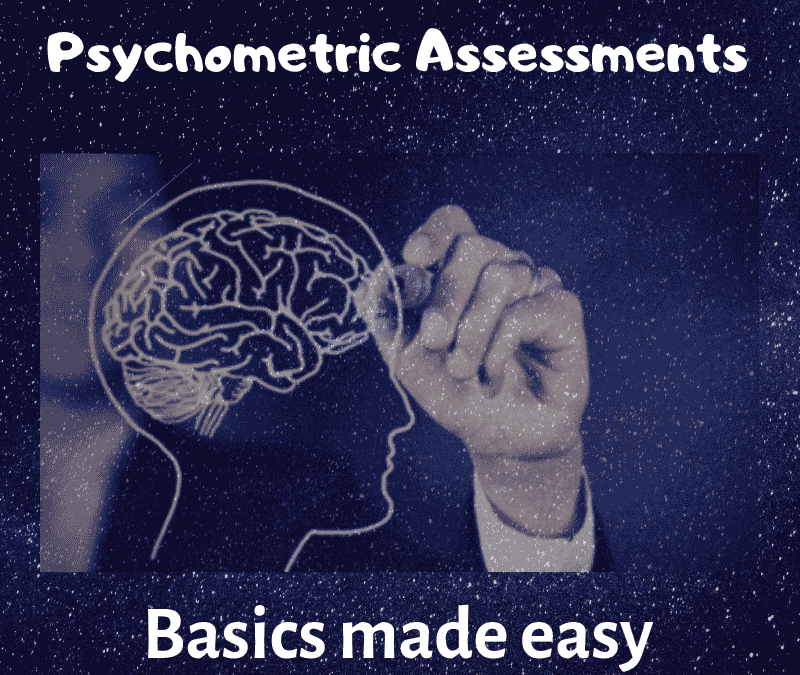For a very long time, top corporations have been using psychometric assessments in their hiring process. It is a well-accepted method for them to identify aptitude and personality traits of potential hires.
Nowadays, there’s also a growing number of SMEs using the same assessments to assess future employees. They are also used for employee development. When used for hiring, they’ve combined the assessment with analysing cover letters, resumes, and face-to-face interviews. All to figure out if the candidate will really be a great fit for the business.
What are Psychometric Assessments anyway?
Unlike regular assessments, psychometric assessments are not based on subjective answers. It focuses more on the measure of behaviour which is most important for any business.
Professional assessment providers compare the measured behaviours of a possible hire. This is to present a clearer indication of strengths, weaknesses, abilities, and behaviours of the candidate. It will show if a person is motivated by competition or can manage deadlines without undue stress.
Whether they tend to be introvert or extrovert. And if that’s the type of work environment that the person prefers, plus a host of other indicators. All that is valuable and important to the company will be analysed as well.
Do you need help with your hiring process?
Schedule a chat with Sean
Types of Psychometric Assessments
Psychometric assessments can take a variety of forms, but in general, they’ll fall into three categories:
The Personality Assessment.
As you would imagine, these set of ‘assessments’ will help employers predict how a possible hire will react in a certain situation. These questionnaires will examine results by comparing results to the typical behaviours from a reference group.
For example:

Alternatively, behavioural or competency interview questions can be used in place of this test. Questions like “tell me about a time when you worked as a team leader”. Asking queries like this, that are based on the candidate’s past can help you to predict their future actions.
The Interest Assessment.
This assessment, on the other hand, assesses the candidate’s values, opinions, and personal interest. Then, comparing them to a reference group. You get to work out the future hire’s motivation with the help of this assessment.
Of course, you could replace this by asking the right personality questions outright during the interview.
The Aptitude Assessment.
The aptitude assessment is another facet of many psychometric assessments. This includes verbal, numerical and abstract reasoning.
Typically, there are many skill specific assessments available. So when choosing the right psychometric assessment to use, make sure that the aptitude portion is relevant to what the future function is of the candidate.
Simply put, the aptitude portion of the assessments involve showing the possible hires some data (e.g. graphs, tables, reading passages, figures). After which, asking them to interpret data or answer comprehension questions.
How long does an assessment take?
It depends on the style, structure, and skills being measured. Psychometric assessments usually have a strict time limit. On average, each assessment lasts about 20 minutes.
These assessments are pretty intense, so you wouldn’t want it to last for more than an hour. If it’s done longer, it can most likely tire people out.
Remember, if you want their personality to shine, candidates should be at ease and not be put through too much pressure. Unless of course, the pressure is the name of the game for the job role.
All reputable psychometric assessments are designed by experts such as occupational psychologists. It should come with a manual detailing how to assess results correctly.
There are tons of unaccredited online sites claiming to offer legitimate assessments but be very wary. You need to do your research and if you see free assessments, it’s more likely not legit.
The selector group has a good line up of test. You can check them out here.
When would you use a psychometric assessment?
Clearly, there’s a difference between a personality, interest or aptitude assessments. That said, the assessments tend to work better on certain segments of the recruitment process, e.g:
- Small businesses who wish to filter candidates will ask them to complete an aptitude assessment online. This is to whittle them down before calling them.
- Some SME’s assess all possible hires at once, under strict exam conditions for accuracy. It also hinders candidates from googling the answers or asking for help.
- These assessments are often more costly since it requires a professional examination of the results. Usually, companies utilise these assessments later in the process to get the most suitable person for the job.
- Sometimes these assessments are conducted when recruiting for managerial posts or after a job has been offered. In order to assess appropriate motivation, managerial techniques and how well the person will fit into the team.
Summing it all up
If you are planning to use psychometric assessments, make sure you take a structured approach before giving it a go. To start with, you need to ensure you know the skills you’re hoping to assess. Choose assessments that assess those skills. And, make sure you use only accredited assessment providers.
Lastly, it’s important to not assess a candidate based on a psychometric assessment alone. If used during the interview process, then use it in conjunction with traditional methods. Take into consideration your understanding of the situation as well.
This report has been structured to give a general overview of psychometric assessment. Please be aware that there are many providers and methodologies available. So, do your homework before committing to any particular provider.
Have questions about psychometric assessments?
Schedule a chat with Sean


Recent Comments